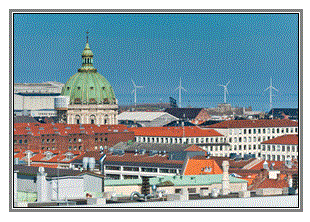I was recently alerted to this posting from our team in
Europe, who continue to find new opportunities in Smart Cities. So just how
large is this market?
1. In 2013, 70% of Worldwide Spending on Smart City Projects
Will Be Focused on Energy, Transportation, and Public Safety, and 90% of These
Will Be at Least Partially Funded by National or International Governments
2. At Least 50% of Smart City Programs Will Be Initiated at
the Line-of-Business or City-Function Level
3. Worldwide Spending on Smart Water Solutions Will Reach
1.35€ Billion in 2013
4. Smart City Information Challenges Will Begin to Be Framed
as Big Data Issues
5. Local Government Will Remain in the Research and
Evaluation Stage Regarding Machine to Machine,
with Growth in Very Specific
City Functions Mostly for Medium-Sized to Large Cities
6. Cities with Open Data Initiatives Will Drive 50% More
Private, Citizen, and Crowd sourced Mobile Applications
7. In 2013, Local Government Will Connect to Citizens via
Mobile Devices and Social Media, Accelerating a New Type of Citizen/Government
Relationship
8. Smart City Programs Will Experiment with New
Public/Private, Risk-Reward-Sharing Partnership Models to Make Funding
Sustainable
9. At Least Three More Tier 1 Global ICT Vendors Will Enter
the Market with a Branded Smart City Solution, Leading to More Intense
Competition Among Existing Players
10. At Least 70% of Smart City Programs That Will Succeed
Between 2013 and 2015 Will Be Governed by Joint Ventures That Include City
Leaders as Key Stewards
The
full list of predictions and free sample pages from the full document are
available here.
Smart Cities: Infrastructure, Information, and Communication
Technologies for Energy, Transportation, Buildings, and Government: City and
Supplier Profiles, Market Analysis, and Forecasts
The smart city technology market will grow from 4.56€
billion annually in 2012 to 15.1€ billion in 2020. Trillions of dollars will be
spent on urban infrastructure in this period, presenting an immense opportunity
for new transport management systems, smart grids, water monitoring systems,
and energy efficient buildings. Information and communication technologies will
be deeply embedded in the fabric of both old and new cities and will change the
way we think of city operations and how we live and work in these environments.


No comments:
Post a Comment